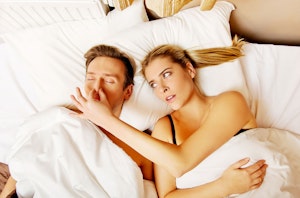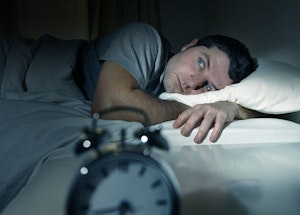You’ve heard it many times by now: Sleep improves performance on the job, in the classroom and in sports.
Sleep can also help or hurt sexual performance. People don’t generally have trouble talking about their sleep issues, but concerns about sex are not as openly discussed. However, it’s very important because research shows that sexual satisfaction affects one’s psychological health and overall outlook on the world around them.
Here are three common questions about the relationship between sleep and sex.
Does poor sleep affect sex drive in both men and women?
 Yes. According to the doctors at eos sleep, a New York-based treatment center for snoring and sleep apnea, sleep problems and disorders are linked to erectile dysfunction (EDS), female sexual dysfunction (FSD), decreased libido and clinical depression.
Yes. According to the doctors at eos sleep, a New York-based treatment center for snoring and sleep apnea, sleep problems and disorders are linked to erectile dysfunction (EDS), female sexual dysfunction (FSD), decreased libido and clinical depression.
A 2009 study published in the Journal of Sexual Medicine involved 401 men with sleep apnea and found that 70% of them had symptoms of erectile dysfunction. In another study from the University of Chicago, researchers observed that sex drive in men dropped dramatically with lack of sleep, and another study from the Journal of Sexual Medicine found sleep-deprived women were 14% less likely to have sex than those who reported getting sufficient sleep. Interestingly, a study of college women indicated that every hour of sleep corresponded to greater vaginal lubrication and a higher chance of being in the mood for sex the next day.
Can sleep problems cause infertility?
 Not getting enough Zzzz affects more than sex drive. Because the circadian clock regulates hormone secretion, an interrupted sleep cycle throws off reproductive hormones and can cause infertility in both men and women.
Not getting enough Zzzz affects more than sex drive. Because the circadian clock regulates hormone secretion, an interrupted sleep cycle throws off reproductive hormones and can cause infertility in both men and women.
A Danish study of 953 subjects published in the American Journal of Epidemiology showed that sleep-deprived men had lower quality semen than those who were not. When you don’t get enough sleep, your body releases the stress hormone cortisol, which negatively impacts your sex drive. That makes sense because when we are tired or stressed, we aren’t in the mood for sex. Ironically, cortisol levels drop naturally during sex and orgasm. So even if you’re not feeling frisky, it might be worth a go.
How are sleep and depression linked to low sex drive?
 Insomnia is one of the main symptoms of depression. While it’s difficult to determine if depression causes insomnia, or the other way around, it is widely known that depression decreases sex drive in a big way. This is exacerbated by the fact that anti-depressants used to treat depression also negatively impact sexual desire and performance.
Insomnia is one of the main symptoms of depression. While it’s difficult to determine if depression causes insomnia, or the other way around, it is widely known that depression decreases sex drive in a big way. This is exacerbated by the fact that anti-depressants used to treat depression also negatively impact sexual desire and performance.
As science helps us understand more about the different aspects of sleep, we are discovering the many ways it impacts our lives and well-being. The body at rest rejuvenates, and the more we can allow this natural and necessary process, the more we can enjoy good nights and great mornings.
Check out our Sleep Tips if you need help to improve your sleep.

